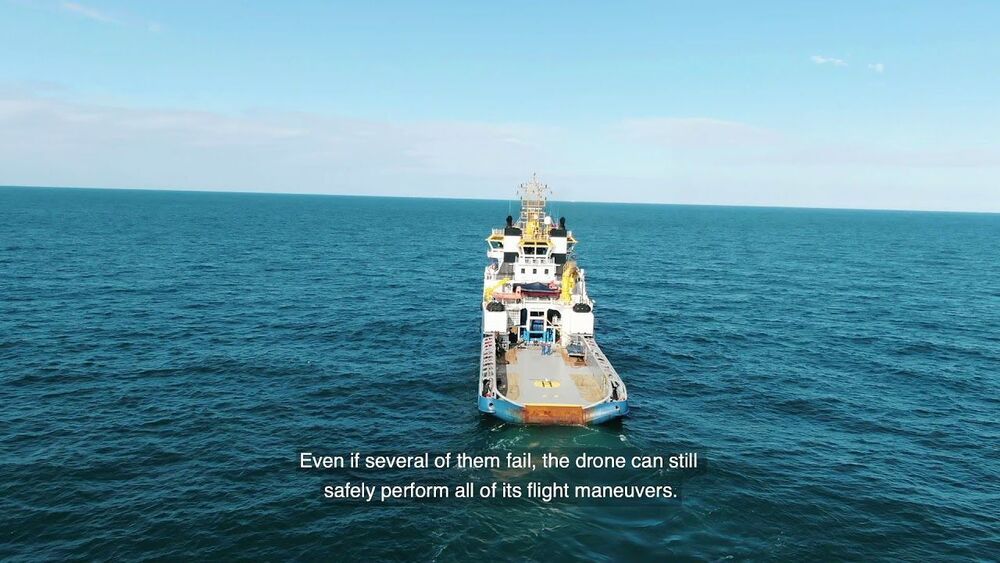VTOL (vertical take-off and landing) drones are quite versatile, as they combine the vertical flight of a helicopter with the fast and efficient forward flight of a fixed-wing airplane. This one features an extended range, thanks to a fuel cell power system.
The experimental aircraft was developed by a team at the Netherlands’ Delft University of Technology (TU Delft), working with colleagues from the Royal Netherlands Navy and the Netherlands Coastguard. It has a 3-meter wingspan (9.8 ft), weighs 13 kg (29 lb), and features 12 motor/propeller units distributed on its two wings. Even if several of the motors fail, it can reportedly still fly and land successfully.
The drone is also a “tail-sitter”-type VTOL. This means that when taking off and landing, its body is angled upwards, allowing the propellers to work more like a helicopter’s rotor blades. For going into forward flight, the thrust is electronically redistributed between the 12 motors, causing the aircraft to level out into a horizontal orientation.
